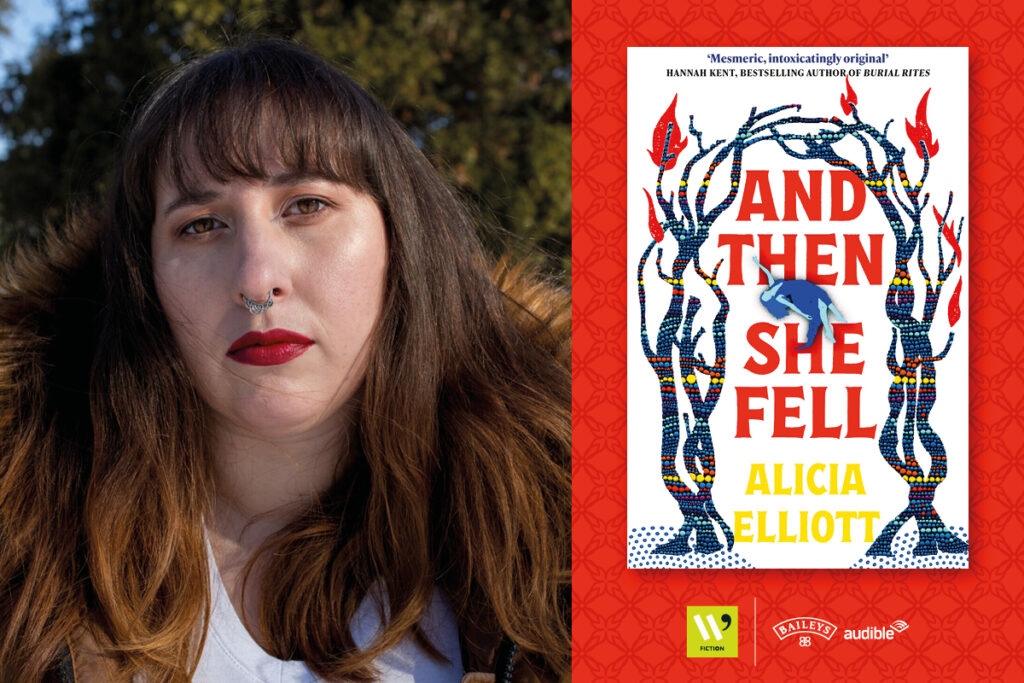And Then She Fell by Alicia Elliott is a mind-bending, gripping novel about Native life, motherhood and mental health that follows a young Mohawk woman who discovers that the picture-perfect life she always hoped for may have horrifying consequences.
Told in Alice’s darkly funny voice, And Then She Fell is an urgent and unflinching look at inherited trauma, womanhood, denial, and false allyship, which speeds to an unpredictable—and surreal—climax.
A deep dive into the shattered mind of a postpartum woman. I loved it.
Anna Whitehouse

Describe your book in one sentence as if you were telling a friend.
Despite their polite appearances, new wife and mother Alice is sure there is something terribly wrong with the wealthy neighborhood she now lives in – and the key to unraveling it and saving herself and her daughter lies in finishing writing her people’s Mohawk creation story.
What inspired you to write your novel?
Two personal experiences were highly influential on how the book came together: having my son when I was 18, and losing my mind when I was 32. The shock of new motherhood and what that entailed, particularly the parts that it seemed no one wanted to talk about, were what caused me to write the first version: a short story. But as I further developed the story, and it continued getting longer and longer, I realized if I added some horror elements to it, it could be a full novel. I had already decided to have my protagonist Alice be experiencing post-partum psychosis in the book and was researching it when I fell into psychosis and mania myself in August 2020. That totally changed the trajectory of the novel, and helped me to realize what the novel needed to be: a reminder that, no matter what has befallen you, and whatever will happen, you still matter.
Which part of the book was the most fun to write? Which was the most challenging?
There is a cockroach named Pete who appears later in the book, and everything to do with writing him and his character was a blast to write. The most challenging part of the book was making sure that Alice’s narration accurately reflected what it felt like to slowly, then quickly, descend into psychosis. It was important to me that readers really related to and understood her before they realized what was happening to her, deemed her an “unreliable narrator,” and became tempted to throw away all her observations and experiences as a result. That has happened to so many mad folks, including myself, and I wanted to make sure it wouldn’t happen to Alice.
If you could take one book to a desert island, what would it be and why?
Giovanni’s Room by James Baldwin. He writes with such confidence and beauty, bringing every emotion the narrator is feeling to the page in a way that I aspire to. I can never get tired of reading any his work, but this novel was the first one of his I read, so it holds a special place in my heart.
Where is your favourite place to write?
On my couch, bundled under blankets with my yorkie Sam cuddled up between my feet.
If you hadn’t been a writer, what would you be doing now? Where would you be?
I honestly have no clue what I’d be doing if I wasn’t writing. I would probably be wishing I was writing, wherever I was.








